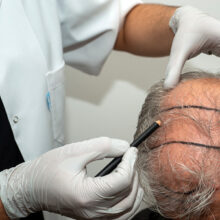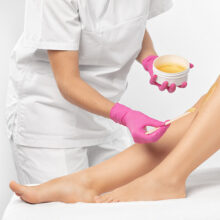Beauty Shopping 101: Breaking Down Common Product Buzzwords
- Published: Thursday, November 20th 2014
- in Beauty
 Have you ever bought a beauty product because it contained the terms “hypoallergenic” or “dermatologist tested?” Does it get your attention when the packaging says “studies show” or “clinically proven?” There are terms that often make us trust a product; but should we? Let’s decode some common beauty product buzzwords:
Have you ever bought a beauty product because it contained the terms “hypoallergenic” or “dermatologist tested?” Does it get your attention when the packaging says “studies show” or “clinically proven?” There are terms that often make us trust a product; but should we? Let’s decode some common beauty product buzzwords:
“Hypoallergenic”
- What we think this means: A product is less likely to cause a reaction, is allergy-proof or has been proven effective for sensitive skin.
- What it really means: There aren’t any standards for manufacturers on the use of “hypoallergenic” to describe their products. It’s impossible to guarantee that a cosmetic or skin care product will never cause an allergic reaction.
- What we should look for instead: Products free of fragrance (organic or synthetic), and additives like isopropyl alcohol. To be safe, test a “hypoallergenic” lotion or makeup on your inner forearm for a few days to see if you have a reaction.
“Dermatologist Tested”
- What we think this means: That dermatologists actually have a standard against which they test ingredients or formulas or that a dermatologist actually tests it on patients.
- What it really means: There are no standardized tests or governed processes for dermatology testing. A company can pay an extra $500 to have a derm sign off on a lab test which someone else executed. You have no way of knowing if the derm is on payroll, unbiased, or even reviewed the tests!
- What we should look for instead: Ingredients which are independently proven to be valuable for treating conditions, such as broad spectrum, antioxidants, anti-inflammatory, etc.
“Specially formulated for mature skin, dark skin, etc.”
- What we think this means: There are products that are exclusive to skin types.
- What it really means: There’s not an FDA definition for using the terms specially formulated for XX types of skin. All skin is different – just because it says for mature skin, dark skin, etc. does not mean it is right for you.
- What we should look for instead: Read the label for ingredients that treat your specific condition (dryness, acne, wrinkles, etc.)
“Studies show, clinically proven, etc.”
- What we think this means: That an independent study was conducted using standard scientific measurements of cellular change.
- What it really means: In most cases, these are observational studies in which untrained participants are asked to describe the improvement they see visually on the surface. If eight out of 10 people say they saw fewer lines, the company claims that there was 80 percent improvement. There is no guarantee you will have the same results!
- What we should look for instead: Ingredients that are proven to work and what’s right for you. Read the fine print, there is likely to be a disclaimer. Do your homework.
“Cosmeceutical grade ingredients”
- What we think this means: There’s a perception that cosmeceuticals are a pharmaceutical grade cosmetic and are only available through a Licensed Physician or Esthetician. And, they contain a higher amount of active ingredients than anything you could buy over-the-counter.
- What it really means: There’s no regulation unless the product contains a high enough concentration of an active ingredient that is considered a drug.
- What we should look for instead: If there is a high level of active ingredients, it will show on the drug panel on the bottle. Active ingredients are those that actually do something to change your skin – ex. reduce wrinkles, brown spots, hydrate, etc. Water is usually the main ingredient in any skin care product. However, it doesn’t do anything, which is why it is not considered an active ingredient.
“Non-comedogenic”
- What we think this means: The product is free from ingredients which clog the pores.
- What it really means: There aren’t any standardized tests to determine whether a product is comedogenic or not. The skin is highly individual – a product that does not induce acne in one person may induce acne in another – making standardization a serious challenge
- What we should look for instead: Products that are not heavy creams, as those are the most clogging to the pores. Opt for serums, gels, and lightweight, more liquid, creams.



